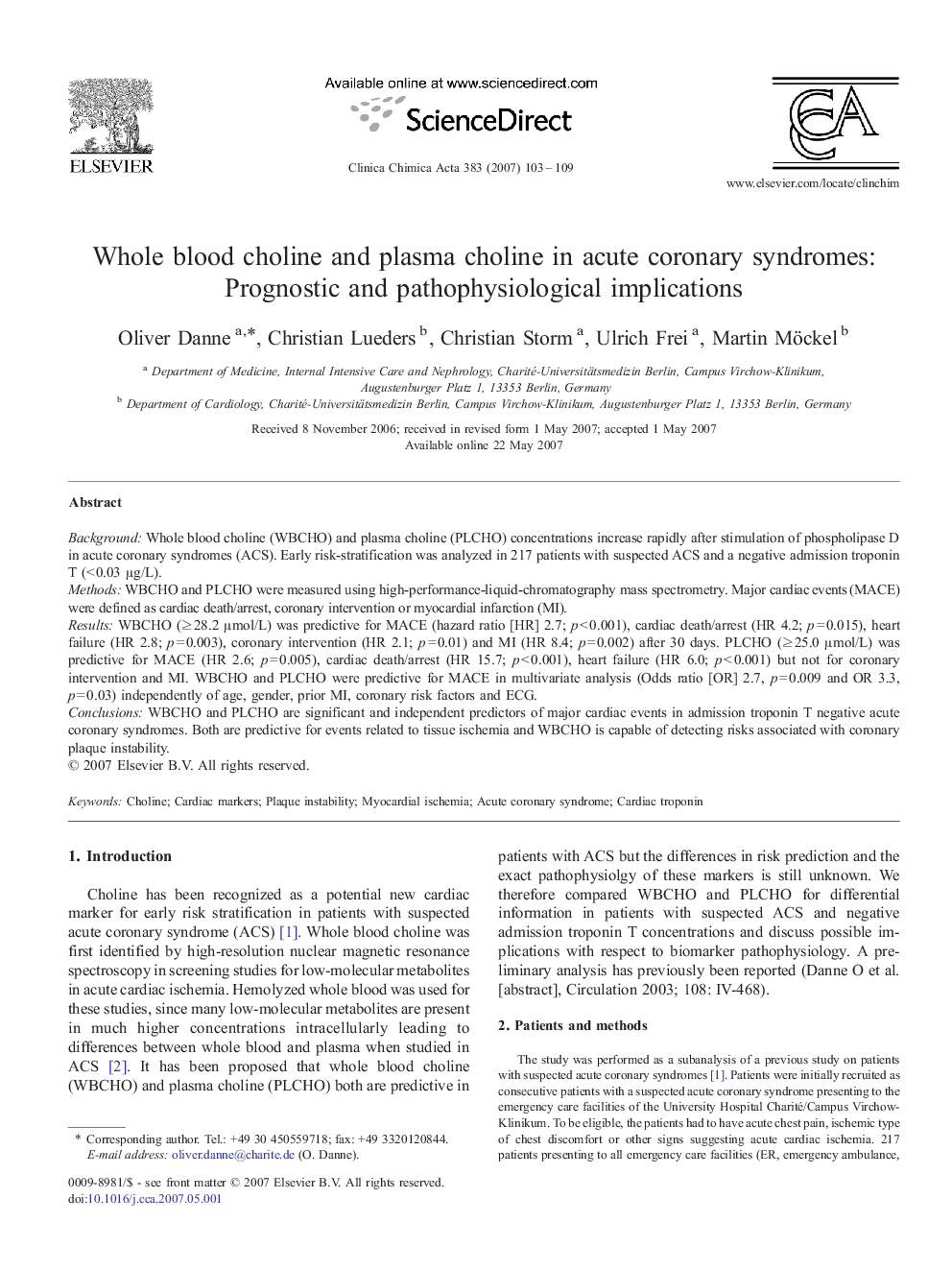| Article ID | Journal | Published Year | Pages | File Type |
|---|---|---|---|---|
| 1967553 | Clinica Chimica Acta | 2007 | 7 Pages |
BackgroundWhole blood choline (WBCHO) and plasma choline (PLCHO) concentrations increase rapidly after stimulation of phospholipase D in acute coronary syndromes (ACS). Early risk-stratification was analyzed in 217 patients with suspected ACS and a negative admission troponin T (< 0.03 μg/L).MethodsWBCHO and PLCHO were measured using high-performance-liquid-chromatography mass spectrometry. Major cardiac events (MACE) were defined as cardiac death/arrest, coronary intervention or myocardial infarction (MI).ResultsWBCHO (≥ 28.2 μmol/L) was predictive for MACE (hazard ratio [HR] 2.7; p < 0.001), cardiac death/arrest (HR 4.2; p = 0.015), heart failure (HR 2.8; p = 0.003), coronary intervention (HR 2.1; p = 0.01) and MI (HR 8.4; p = 0.002) after 30 days. PLCHO (≥ 25.0 μmol/L) was predictive for MACE (HR 2.6; p = 0.005), cardiac death/arrest (HR 15.7; p < 0.001), heart failure (HR 6.0; p < 0.001) but not for coronary intervention and MI. WBCHO and PLCHO were predictive for MACE in multivariate analysis (Odds ratio [OR] 2.7, p = 0.009 and OR 3.3, p = 0.03) independently of age, gender, prior MI, coronary risk factors and ECG.ConclusionsWBCHO and PLCHO are significant and independent predictors of major cardiac events in admission troponin T negative acute coronary syndromes. Both are predictive for events related to tissue ischemia and WBCHO is capable of detecting risks associated with coronary plaque instability.
